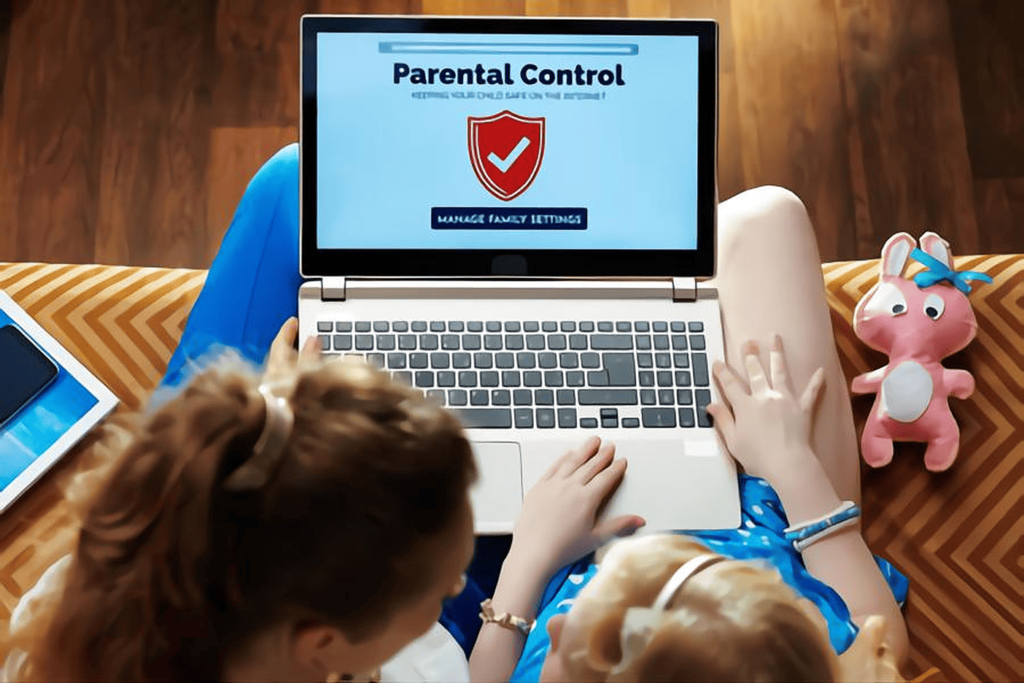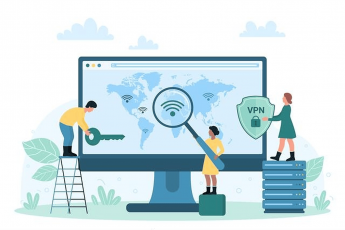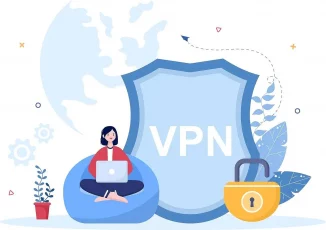Key takeaways at a glance:
- Children’s safety on the internet is a perennial issue for parents. Several types of parent control are available, but can they be voided by VPNs?
- VPNs affect several changes in internet traffic that can circumvent some features in some parental controls.
- Some parental controls are VPN-proof, though, and remain effective even against the best commercial VPN services.
- In the final analysis, technology can help with the issue, but nothing can substitute vigilance.
There are two good reasons for you to be reading this. You more likely are a concerned parent or a somehow precocious minor. In both cases, the kind reader is trying to figure out if he or she can use a VPN to override the parental controls in a smartphone, a tablet, or a personal computer. If you are the concerned parent, don’t worry, we won’t give the secret away. But, on the other hand, if you’re a precocious kid, keep reading anyway, you may just learn something useful.
Types of parental control
Parents worried about what their kids watch on the internet were born at the very minute the internet slipped out of the academic world and became available at home. Unlike cable TV and other technologies that deliver content to users, browsing the web, downloading videos or books is not as easily noticed by parents. So the said parents need some extra help, and it’s available to them in the following ways:
- Blocked websites.
- Using filters from the most used services (Youtube, Google) to filter out inappropriate content.
- Keyloggers. Keeping track of every pressed key for future review.
- Scheduling. Have control over the time of the day and the length of the internet sessions a user has.
- Preventing third-party apps in a given device.
- Tracking social media, email traffic, and other communication tools.
- Geofencing. This means tracking a child using GPS.
So yes, some tools are available for parents, and no, they are not that clear cut, or easy to use, or overly automatic. The good news is that they cover a wide range of options, and some of the available software options can do more than one of the tasks listed above. The bad news is that if a parent is going to be effective, he has to be willing to use at least a few of those tasks simultaneously, which takes a bit of time, attention, and work. So no, it’s not something you can leave to the nanny.
So now that we know what parental controls are available in the market, we can move on to explore our fundamental question. Can a VPN render any of those measures void?
Read also: Best antivirus software with parental controls today.
VPNs and parental controls

We start by considering what a VPN does for you, which could be especially useful if you’re not already one of its users.
VPNs encrypt your internet traffic. This renders all the things you do on the internet unreadable to any external observer (ISP, hackers, governments, etc.). They also mask your IP address so that the other nodes on the internet with which you interact can’t tell where your traffic is coming from. Some VPNs even use their own DNS serves so that your ISP can’t use your most innocuous browser traffic and turn it into a readable IP address.
So now we delve into the thick of it. This is how VPNs could just ignore some parental controls.
Avoid content filters
The filters in question often use a different DNS provider that blocks DNS requests deemed unsafe. Their main goal is to avoid malware and phishing sites to avoid unwanted attacks. Websites that include mature material such as drugs, alcohol, gambling, pornography, etc., are also on these DNS’s blacklist.
A VPN will almost surely use a DNS of its own. This means that it won’t use the DNS that filters out sites that prevent malware and adult material access. This applies to almost every commercial VPN. On the other hand, free VPNs could or could not behave like this. But You should never use Free VPNs anyway, for reasons that are beyond this article’s scope.
Go around the firewall’s rules
VPNs are usually going to ignore any firewalls as well unless they are configured to block VPN connections specifically. However, it takes an outstanding network manager to do that without rendering most of the network useless, so it’s not a very common option. Also, if the VPN in question is a decent, commercial one, the chances are that it has plenty of servers everywhere in the globe. Blocking every IP is, in that case, impossible unless you have all the information you need.
Netflix and similar companies rely on the services of VPN IP aggregators (Maxmind, IP2Location) to block them. But that can’t guarantee that many users will evade those precautions.
Another option is blocking ports. VPNs like the 443 port, which is common in most secure websites.
Effectively hide browsing habits
Some ISPs offer detailed reports of what users do online. So a parent can find out a kid’s browsing history and other online activities (games, messaging apps, and so on).
If you wonder what good that can do if all of the traffic is encrypted, you’re asking the right question. The answer is simply nothing. Even your ISP can’t know what a user is doing while they’re doing it with a VPN’s help.
VPN activities that are compatible with parental controls
All is not lost, though. VPNs are powerless against keyloggers, social media and email logging (performed locally, not by the ISP), user-based time tracking, or device-based, app-based, or service-based parental controls (YouTube has supervised accounts, as do Apple Screen Time, Paramount+, Disney+, and other content providers).
Geo-fencing is almost immune to VPNs as well. VPNs can hide geophysical data related to your IP, but the GPS location data used in geo-fencing reports a point in space, plain and simple. As we write this, only Surfshark is capable of altering GPS data. But even in that case, a violent change in your reported GPS position (suddenly, you’re supposed to be in another continent, for instance) will set off the bells in geofencing apps. So parents are pretty safe in this regard.
Last but not least, VPNs can’t do anything about parental controls that prevent third-party apps. So what is the significant advantage here? If a user can’t install a VPN, he can’t use it.
Conclusions
So can you, as a parent, rely on all those parental control apps and sleep quietly during the night knowing that your kids’ eyes will be safe on the web, even with a VPN? Sorry, no.
As we noted in the preceding paragraphs, some parental controls will indeed go a long way in preventing any kid from accessing inappropriate material.
But in matters of digital security, there is never a final word.
First of all, it’s essential to notice that some of the features commonly found in VPN will help any user avoid parental controls. However, if it makes you feel any better, those VPNs are usually commercial services that need a subscription, so your kid probably can’t use them.
But most importantly, it’s a very well-known, almost proverbial fact, of the digital life that kids become more expert users than their parents rather quickly in life. So if you want to keep them safe, you have to keep up with their skills.
Above all, digital reality changes quickly. So you have to remain vigilant because a new app, or a new protocol, or a new service can pop out of nowhere at any time in a way that your children will learn about it very quickly and use it to have their way.
In short, parental controls are on your side if you are the parent, and they can help you very much indeed. But nothing can substitute time and attention spent on your kids.






